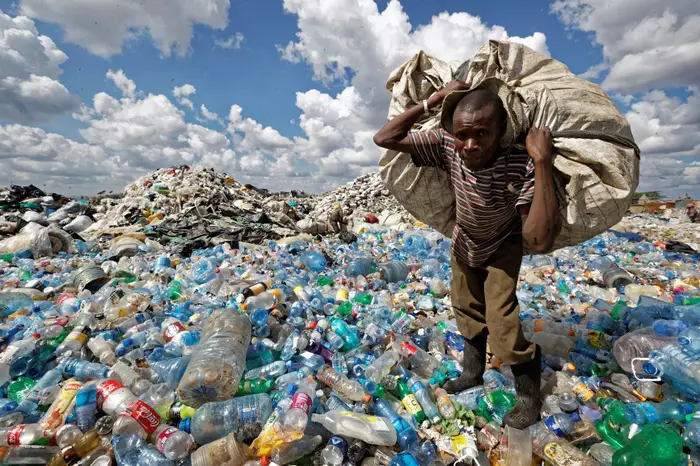Frimpong-Manso Institute calls for action against plastic pollution

The Frimpong-Manso Institute (FMI) has urged the government to take concrete measures to combat the growing menace of plastic pollution in Ghana.
In a statement signed by Dr. George Manful, Thematic Chair for Environment and Sustainability at FMI, the institute emphasized the grave impact of plastic waste on public health and the environment.
According to FMI, Ghana’s inadequate waste management systems have led to widespread open burning of plastic waste and accumulation of plastic debris in the environment.
The institute noted that less than 10% of plastic waste is collected and recycled, contributing significantly to the pollution of the Gulf of Guinea.
The institute highlighted alarming findings from a recent international study, which revealed that micro- and nanoplastics were found in the brain, liver, and kidneys of deceased individuals, with the brain showing the highest concentrations.
FMI also expressed concern that Ghana is one of only four countries in West Africa yet to implement laws against single-use plastics.
To address the crisis, FMI outlined four key recommendations.
The institute urged the government to effectively implement the existing strategy, introduce a legally binding national instrument to phase out short-lived and single-use plastics, boost the capacity of metropolitan, municipal, and district assemblies to manage plastic waste, and incorporate environmental education into school curricula.
The call to action comes as the world marks World Environment Day today, themed around plastic pollution for the third time in recent years.
FMI stressed the urgency of coordinated global and national action to address one of the planet’s most pressing environmental threats.
Source: Ghana/otecfmghana.com.




